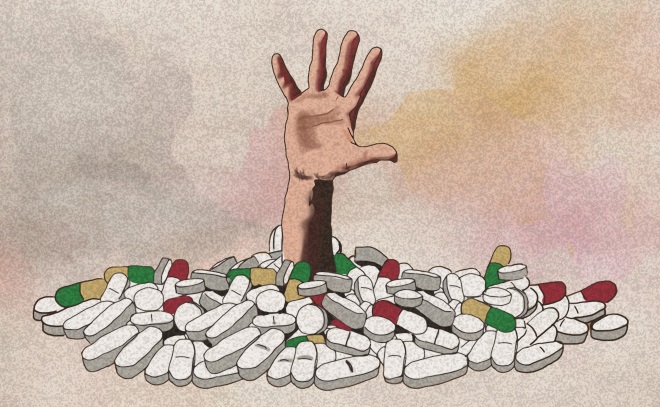
The call for a junk food tax to combat childhood obesity, the criticism of widespread statin prescribing and the opioid painkiller addiction epidemic gripping the world were some of the most popular comment pieces read by you according to analysis of our online statistics in 2015.
Below are the five most read pieces. The variety of topics reflect our wide readership and their wide interests:

Source: MAG / The Pharmaceutical Journal
A tax on junk food is the way to fight the childhood obesity crisis
Colin Michie, chairman of the Royal College of Paediatrics and Child Health’s Nutrition Committee, outlined his reasons why foods high in salt, sugar and fat should be taxed to discourage unhealthy eating and slow rates of childhood obesity. Subsequently, in November 2015, UK Prime Minister David Cameron came under pressure to reverse his opposition to a “sugar tax” after MPs and campaigners called for bold and urgent action to reverse the £5bn annual cost of obesity to the NHS.

Source: Shutterstock.com
Prescribing statins: time to rein it in
John Abramson, lecturer in healthcare policy at Harvard Medical School, United States, is no stranger in the world of medical publishing. He has contributed pieces to the
BMJ
on the widespread use for statins. Here, he argues that statins have been overprescribed for decades and it is time to reduce this practice.

Source: Javier Trigo Gonzalez
The prescription opioid addiction and abuse epidemic: how it happened and what we can do about it
Throughout 2015, there have been stories emerging, particularly from the United States, on the growing number of people becoming addicted to opioid painkillers. Two doctors from the United States provide background to how the epidemic started and give suggestions on how we can reverse this worrying trend.

Source: Shutterstock.com
With no control on student numbers, tomorrow’s pharmacists will have a bleak future
This piece, published November 2014, was the second most read comment piece last year. Despite it being over a year old, it continues to draw readers’ interest and is the fourth most read piece in 2015. This piece was written on the back of the decision by the UK government not to control pharmacy student numbers, despite strong advocacy by the profession.

Source: Shutterstock.com
The genius is out of the bottle: smart drugs are here to stay
Modafinil, approved for narcolepsy and other wakefulness disorders, could be the first safe pharmaceutical nootropic agent or ‘smart drug’, according to a review published in European Neuropsychopharmacology in August 2015. Justin Thomas, associate professor at the College of Sustainability Sciences and Humanities, Zayed University, Abu Dhabi, argues that, if the long-term effects are beneficial, there should be no reason to stop people using cognitive enhancers such as modafinil responsibly, in the same way as drinking a cup of coffee.


